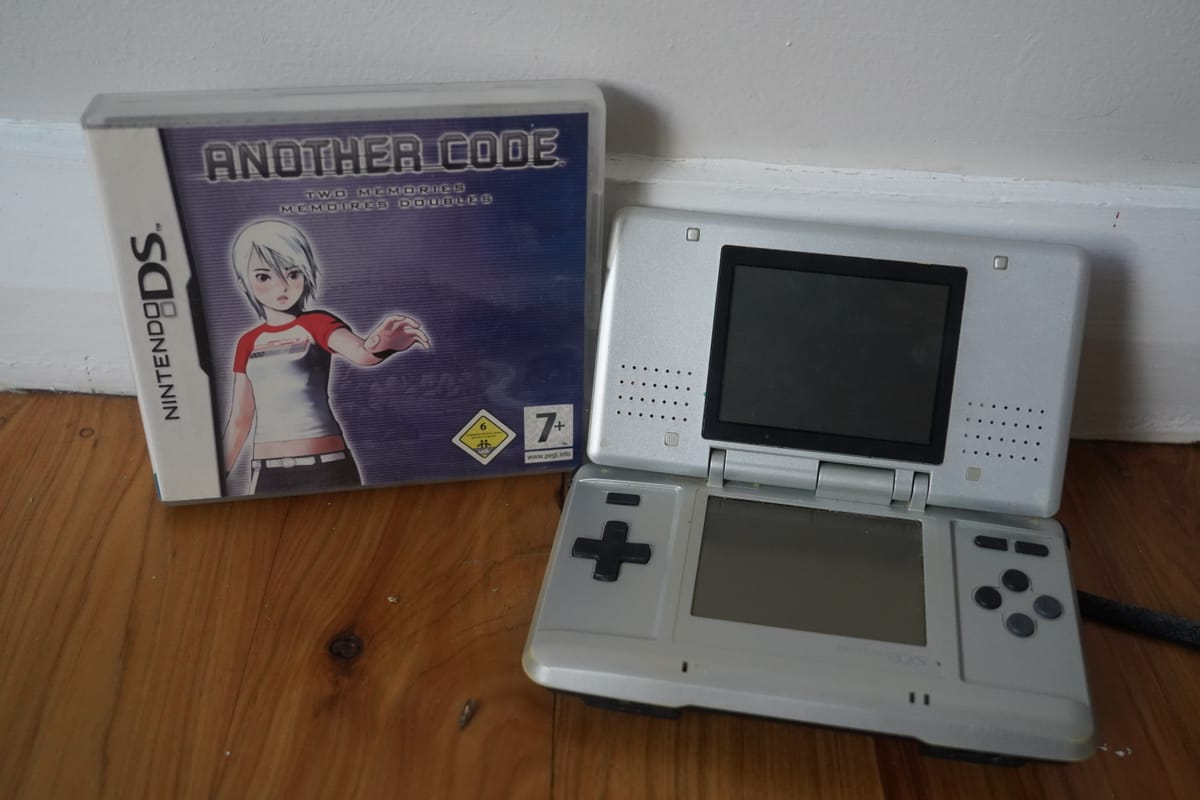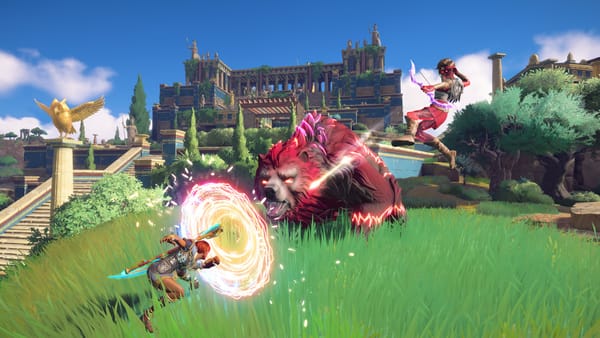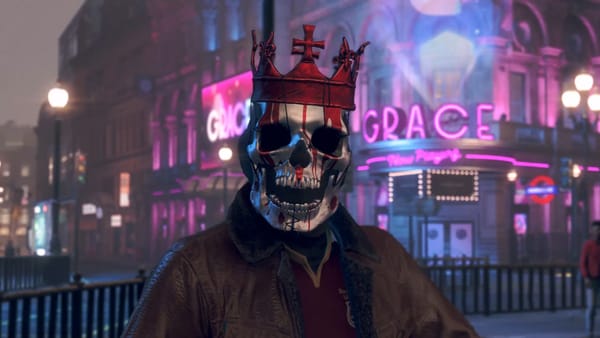Another Code Revisited

Looking around various draws, I had one thought on my mind- where is my 3DS charger? However, all I could find was the original Nintendo DS system and its associated charger. While my New Nintendo 3DS the last of the line of consoles would have been a smoother experience, playing on the original somehow felt perfect. For I had an idea to replay one of the first Nintendo DS games I had, and one of the games that was so prolific to me. Having all those years ago pivoted my ever-pivoting blog to become Another Code Labs- a fan site devoted to the CiNG developed game Another Code: 2 Memories.
I had revisited the game in the past, however having lost my cartridge for my copy I ended up rebuying it sometime pre-covid. Sadly, I did not end up playing it, instead it resumed its position along side my Nintendo DS games collecting dust.
I did end up replaying it however, a good few months ago around the beginning of the year. For those playing at home it is now May, the article is not written except for those first two paragraphs you just read. However instead of headfirst into an article or review without writing notes- somehow, I came prepared and have an extensive dot point word document that covers some of my more random thoughts as I played the game.
Before I get to involved in the article, I will run through what Another Code: 2 Memories is. The game launched in 2005 throughout the year in various regions for the Nintendo DS system. It is a visual novel which was developed in Japan by CiNG a now defunct studio that after the release of Another Code developed other games on Nintendo systems such as Hotel Dusk and its sequel, the Another Code sequel for the Wii, and another Nintendo DS game called Again which was a B grade FBI visual novel. The developer also worked with a dream team to create the best Nintendo Wii game Little King’s Story.
But that is getting to carried away with the developer, not the game. Another Code: 2 Memories centered around the protagonist Ashley finding out her father is still alive, after not seeing him since she was a little girl. Her father’s sister Jessica became her guardian and has taken her to Blood Edward Island which has a cool mansion on it. On this island, she meets D a ghost who she projects her feelings onto while trying to come to terms with her father’s reappearance, and to help solve the mystery of Blood Edward Island to help reclaim D’s memory. Her father is a scientist who has been working technology relating to memory and more manipulation- obviously for the good, but you know how all technology ends up been used.
However, the list I wrote to review the game ends its brilliant hot takes halfway through the game, and just sits unfinished with the last dot point entered with nothing following it. Because of that horrible chain of events, lets go back a few steps to what I remember liking about the game originally.
For me I remember been captivated prelaunch by the first few screenshots which came out for the game. The only other visual novel I remember been announced for the Nintendo DS at this time was Sprung. Sprung ended up becoming a launch title and had some great bad reviews, the title deserved it all been a dating game where the protagonist thought it was a brilliant idea to go on a skiing trip with his friend zoned best friend, he has a crush on, and the alternative of “doing her a favor and playing the field instead”. Okay I am maybe looking at the game with fair to modern glasses with that, but the Nintendo DS launch was just a weird time for Nintendo.
The Nintendo DS in general was incredibly horny, from the “Touching is Good” slogan, to another launch title Project Rub (which became Feel the Magic in America) which was a mini game compilation with a guy trying to do everything he can to win over a girl he found attractive. Did I mention that he is assisted by playboy style “Rub Rabbits” and has a romantic rival which is also vying for the girl’s affection? Like I said the Nintendo DS launch was horny and weird.
There was something grounded about a mystery visual novel game coming out of Japan, for someone who did not play much or any visual novels up until that point. The games I grew up on were bigger blockbuster Nintendo games, or the PC simulation space of Theme/Sim whatever or the extreme violence of any ID Software game with a splash of Unreal Tournament. Another Code seemed normal compared to those titles as well.
I never got into Myst for example except for the journey up until the piano, but despite that I enjoyed the atmosphere it created. The screenshot of a sign you had to patch together on the touch screen seemed to embody that same mystery feeling. I do not remember much of the story outside of the headline plot points been revealed before launch and the introductory puzzles where mainly shown in media (eg. Anything before entering the mansion) and that made me curious to what I would find.
Been one of the launches I was around on the internet more alert and hype train ready, the Nintendo DS had already become my “this is cool, I want to write about this” product. For awhile I had DS Network and Aussie DS on GeoCities for a breath flash of a second before I started Another Code Labs. A year or two moved fast back then, and the billions of forms I made each day instead of just sticking with one got old quickly so I guess needed a new gimmick which would work.
But I digress, I was excited of the game, and what it could mean for the Nintendo DS from a console perspective. I was quite into mini games which really used the hardware well. The Nintendo Wii Remote did not scare me off when it the at the time the Revolution controller was revealed. Its bizarre feature set and motion controls made me excited for gaming. It is a feeling I have not felt for some time, which I started to feel again with the Nintendo Switch. However, I wish Nintendo used the two controllers, two players idea a bit more, such as making another Four Swords or Triforce Heroes for Switch.
Another Code: 2 Memories pioneered some of the puzzle mechanics which other Nintendo DS games utilized or expanded on. The in game Nintendo DS the Dual Another System, presented a way to echo the hardware in game, which brought logic to the puzzles as they where presented mostly as if they where done on the DAS.
For me, something so pivotal in shaping what types of games existed on the Nintendo DS and what types of games in general I wanted to play as well as write about deserved a revisit. With the game launching mid 2005 in Australia, it has been potentially more then a decade and a half since I played the game. I think a revisit has been on my mind however for probably a good 5 or so years. Life has impacted us all in the past few years, and in general I had gotten to a place of unable to proceed any further with my own creations. Now I do think the Nintendo DS and Wii is Retro (following the current gen, last gen and retro rule) I think it is perfect to revisit now more then the past few years anyway.
As I mentioned in the beginning of this article, I wanted to play this on my Nintendo 3DS. Having the newest and latest version of the console in a snazzy Mario wooden theme. However, I couldn’t find my charger and instead had to settle on the original Nintendo DS which apparently zoomers don’t recognize or whatever the meme is. It does seem perfect to play it on the original hardware it was released for, despite the ample quality of life improvements the 3DS offers over the Nintendo DS line of hardware.
So, for a while I did marvel at the Nintendo DS navigation and Pictochat- however that is not Another Code and not the point of this article!
One thing I loved and still do is the original Another Code uses your birthdate for Ashleys birthday. The Nintendo Wii sequel Another Code: R – A Journey Into Lost Memories gives the character Ashley Mizuki Robbins the birthdate of 25thFebruary 1991. The neat part was my birth year also coincided with Ashley, so the protagonist was my age.
This interesting enough was a change early in the games development with the director Taisuke Kanasaki envisioning a much older Ashley who was 17 years old when designing the character. The game’s scenario writer Rika Suzuki ended up adjusting it to 14 to appeal to a wider range of age groups. Ashley was apparently designed as a character that young boys found appealing as well after this change. Which well- box ticked; I did start a fan site after all.
Another interesting general fact about Another Code which I am reading of Wikipedia, which I of course knew at launch because I ran a fan site is the American games localization. You see outside of changing the name for some reason to Trace Memory, the game adjusts Ashley’s personality to be more skeptical towards what is going on, and a sense of humor. Ann Lin of Nintendo of America’s Product Development Department at the time wanted to make her appear more “realistic” and less “accepting” compared to the Japanese version and English translation. Of course, I have never played Trace Memory, and playing the English translation used for Europe and Australia.
Because of this my notes from my replay, after setting the scene that Ashley is heading to Blood Edward Island after finding out her father is alive is all about the dialogue and how weird it seems.
One such point is “this game has some brilliant dialogue” proceeding with Ashley’s dialogue of saying “I must have fallen asleep”, with her Aunt Jessica replying straight after “yes”.
My complaints about dialogue then seem to be less about Ashley and more Jessica, who at the start of the game is more dismissive of everything and comes off while unsure if going to this island is the right thing to do, less protective and more controlling. I found that when Jessica remerges in the game that the back half of the game with her dialogue seems a little more natural. It is interesting because even trying to recall my original experience with the game I never seemed to have negative emotions towards how Ashley was written, I do find some things Ashley picks up herself as doing as annoying gameplay dialogue which feels a bit rough. Like for example when she has a thought that then flips back as dialogue or is a bit emotive as spelling out some of her feelings rather then conveying them better with how she is written.
Like I just feel I can connect to Ashley better and what she as a character is trying to do compared to her dynamic with Ashley or even her father when there is dialogue. I do not mind the scenes when she is talking to D the ghost or even the boat guy. For me I find the other characters dialogue weird so that in return has Ashley reacting in a wooden or trusting away. I find that I relate to her overly trusting nature and it does not seem like bad writing.
I do not seem to be siding with other characters for certain points raised more in this revisit, I still seem to side with Ashley’s point of view. I don’t have thoughts or comments that “oh I agree with Jessica Ashley needs to calm down and step back”, I have things like “she has a personality of a boomer when she dismisses Ashley’s dreams and says no one remembers things that happened to them at a young age” or “Ashley introducing Jessica as a nice lady- warm hearted and practically raising her, is a dialog choice to allow the player to side with Jessica and understand her point of view”.
I have comments and thoughts about Ashley confused about how the DAS works, been interjected by Jessica as “ASHLEY YOU ARE THE ONLY PERSON WHO CAN USE IT”. I see that less as a nod to “hey remember how the DAS works for later” instead “I’m not going to tell you or help you use the DAS like a kind loving guardian, I’m going to push you aside”.
Okay so I am going to move away from dialogue now to just quickly talk about this brilliant comment I wrote down, “The DAS has been built around it been fingerprint locked, but the DS doesn’t have a biometric scanner- so it is just imagination”. Yes, true that.
At this point of reviewing my notes, we have only just finished the boat sequence, and the only other dialogue comment I have is about the Captain asking about Ashley’s dad, in which she says “Jessica told me he is a scientist”, with my brilliant comment of “so proud, but so naive” after it. I guess you could say I did see the overly trusting nature of Ashley coming through now, but I joked with her, not against.
Yes- this has become me just reviewing my notes on my review of Another Code- it is just easier to write like this.
After Ashley leaves the boat, she is presented with the first puzzle which is a rusty dial to lower the bridge. It has some feedback, and it sticks as you move the dial. I like it because of the feedback it gives the player in that sense, but otherwise it is not anything to write home about. The sequence after this puzzle however is Ashley walking through a path in a nature area. The birds here chirp, and the sound design as Ashley walks on the path is amazing. I really liked the DS era sound design for walking or in general nature areas. There is an ambiance that projects really well and Another Code reminds me of what Lost in Blue did well with its sound design, even though both games are developed by different studios. This sequence also has the sun light drifting through the trees. It is magical.
After this the player will find themselves at a fork in the road which has another puzzle for putting the sign back together. This will be useful later to then solve another puzzle, however because Ashley can not proceed through the gate for now, players will move to the right and find themselves at another dead end, which results in Ashley moving a grave and finding D.
My comments once again are great in this sequence such as “Ashley is scared, but spooky ghost is happy because Ashley can see him”. Or “Ashley is like woe is me because she moved a ghosts grave, but D is like nah don’t worry about it, it isn’t true and continues his monologue”.
Outside of the over explanation of the “Ashley is pure of heart so she can see D”, D originally phrases this as “people with clouded minds can only see what is in front of them”. Which is brilliant. Also, this brain connection I wrote down at the same time “Ghost sets up he has no memories, queue story about D been the last remaining bits of his name (Daniel) and the Another Code: Dual Memories, because metaphors.”
My notes don’t progress to much further after this and instead ends after reviewing the worst puzzle ever. You see where I ended was on the microphone puzzle, you have to blow some dust away with the microphone and then all is right in the world. This concept, every single game this is used in, is bad. There is never any way to bypass these, the consoles these appear on especially the Nintendo DS which used these helps, have the worlds worst microphone. So, I would huff, and I would puff, and I would be blood red in the face and about to die- and nothing would have happened on screen. Every single game. This is not a good puzzle mechanic; this is a horrible idea.
Circling back outside the mansion for a bit, another puzzle mechanic I did not like even as a kid, was the one which you flick an iron spear ball into an empty hand. It does not feel right, it does not work half the time, and it is also bad game design. There I said it.
One puzzle which was cool, is using the DAS you would take some pictures and then flip the images using the manipulation tools the DAS had in the camera section. In fact the DAS had a pretty detailed photo mode, allowing you to take photos all the time, considering you only really need to do it once or twice anyway.
Ultimately Another Code has then put you in the mansion for a bit to solve the mystery of D and then once you progress through the mansion you slowly gain more bits of what the Another project was. Which leads to the meeting up of Ashley and her father, who consumed by grief needs Ashley to identify if her and his fears are correct, before the final antagonist conversation with another player on the field.
That from a gameplay perspective is all fine, like it builds up okay, it reveals things and plot has breathing beats which makes it a times feel like it is not always action, but for a visual novel again this is perfectly fine.
You even get a nice farewell scene with D when everyone is on the beach and wrapping up a “wow what a day” kind of thing, even the boat guy is there. Like again, neither a negative nor really a bad thing for its inclusion.
Another Code really wraps up as a solid visual novel for the Nintendo DS system and the ideas which CiNG utilized became common place for other visual novels. The developers next game the first in the Kylie Hyde series, Hotel Dusk is a stronger game, but Another Code will always hold a special place for what it set out to do, and what it achieved. As well as where it projected me with what I wanted to write about game wise.





